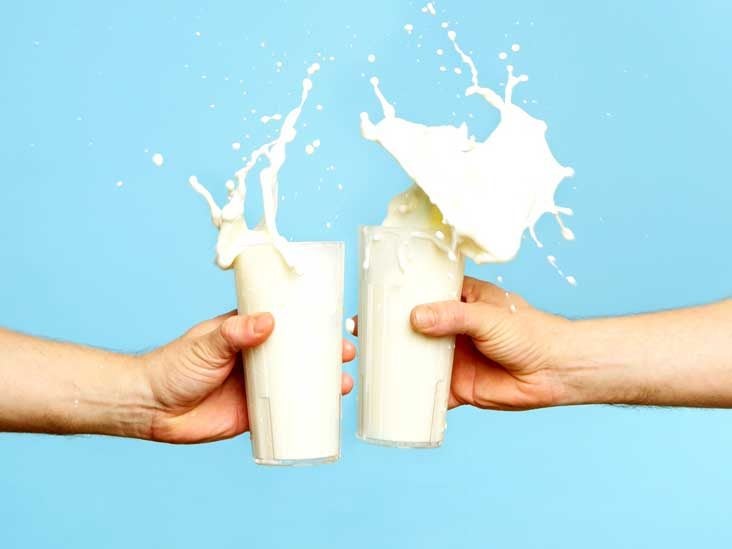When we talk about the milk we talk without any exaggeration about a wonder food in the content of which we find all the vitamins, minerals, and nutritional principles that the body needs.
Milk is one of nature’s main sources of calcium and is very important for babies, according to US-Reviews. Calcium is essential for bone formation and care, among other things. In this article, you will discover the benefits of milk consumption.
Milk is good food at all
Due to its rich content in calcium, phosphorus, and magnesium, milk participates in strengthening the entire bone system and keeping teeth healthy. In other words, the daily consumption of milk since childhood and adolescence keeps away serious diseases that can appear later, such as osteoporosis or fractures on fragile bones. You can check online reviews related to us food companies delivery services, to get ideas of healthy food combinations.
What are the benefits of drinking milk?
Milk has been part of the human diet in most civilizations for thousands of years. Humans began consuming milk about 11,000 years ago when they first domesticated animals. But milk for human consumption today is often processed at very high temperatures, which causes slight variations in its composition.
Milk is one of nature’s main sources of calcium. This is very important for babies. Calcium is essential for bone formation and care, among other things.
Milk also provides other important minerals. This is why milk is one of the most complete foods available.
Milk composition
- Water: the majority component. Milk consists of 80-87{f4d524540be8ba8f8ada1fdb14c4507fa2e90819fbc467e9dd88f772b64f6265} water.
- Carbohydrates: lactose is the main sugar in milk. This component is one of the reasons why it is risky to drink sweet milk.
- Proteins: milk proteins are considered to have high biological value and contain many essential amino acids. Milk consists of 3-4{f4d524540be8ba8f8ada1fdb14c4507fa2e90819fbc467e9dd88f772b64f6265} protein.
- Fats: they make up 3-6{f4d524540be8ba8f8ada1fdb14c4507fa2e90819fbc467e9dd88f772b64f6265} of milk. However, the fat content varies greatly depending on the diet and breed of cows. In general, 90{f4d524540be8ba8f8ada1fdb14c4507fa2e90819fbc467e9dd88f772b64f6265} of milk fat is in the form of triglycerides.
- Vitamins: Of all the vitamins contained in milk, it is worth mentioning vitamin A, vitamin D, riboflavin (B2), cyanocobalamin, and thiamine.
- Minerals: Milk is very rich in minerals, which are usually in the form of salts. Milk contains calcium, potassium, phosphorus, iodine, sodium, chloride, magnesium, and zinc.
Milk and weight loss diets
All of these nutrients contribute to overall health and can play an important role in weight loss. Although there is some controversy regarding the influence of milk on weight loss, there are studies that show that if young adults consume milk after a sports workout they lose more weight than those who consume other liquids with the same energy and the same macronutrients.
Consumption of skim milk helps to lose weight and assimilate the amount of calcium needed by the body. There is a consensus that increased calcium intake, especially from low-fat sources, helps prevent fat deposition and increases metabolism.
Milk and diseases
Some studies show that people who consume milk have a lower risk of dying from life due to conditions such as heart disease and stroke by 15-20{f4d524540be8ba8f8ada1fdb14c4507fa2e90819fbc467e9dd88f772b64f6265}. This research is the first to associate milk consumption with death caused by these diseases. However, there are also contradictory theories that milk contributes to these diseases.
Milk consumption causes an increase in cholesterol levels and at the same time involves a decrease in blood pressure, both of which are mechanisms found in cardiovascular disease.

